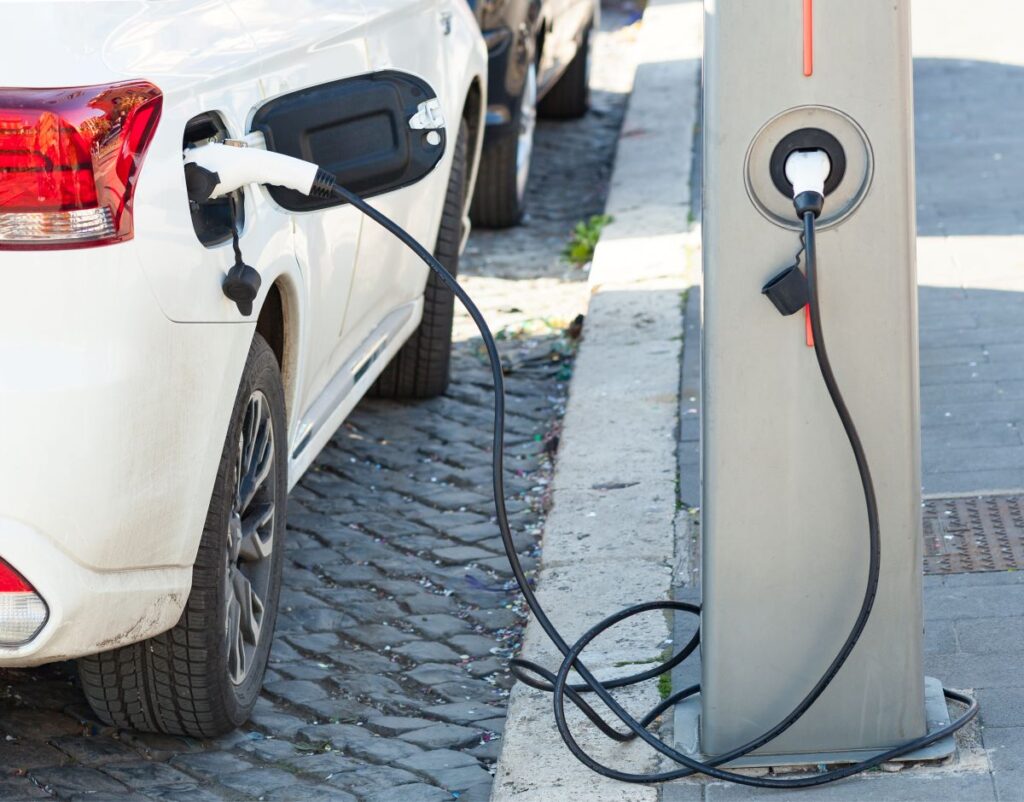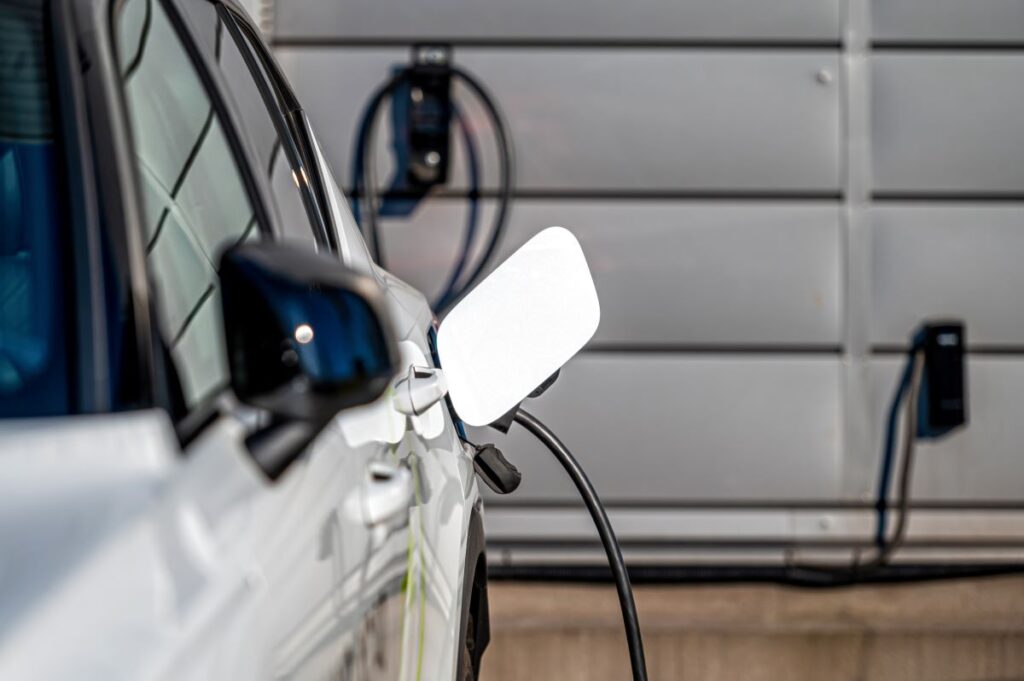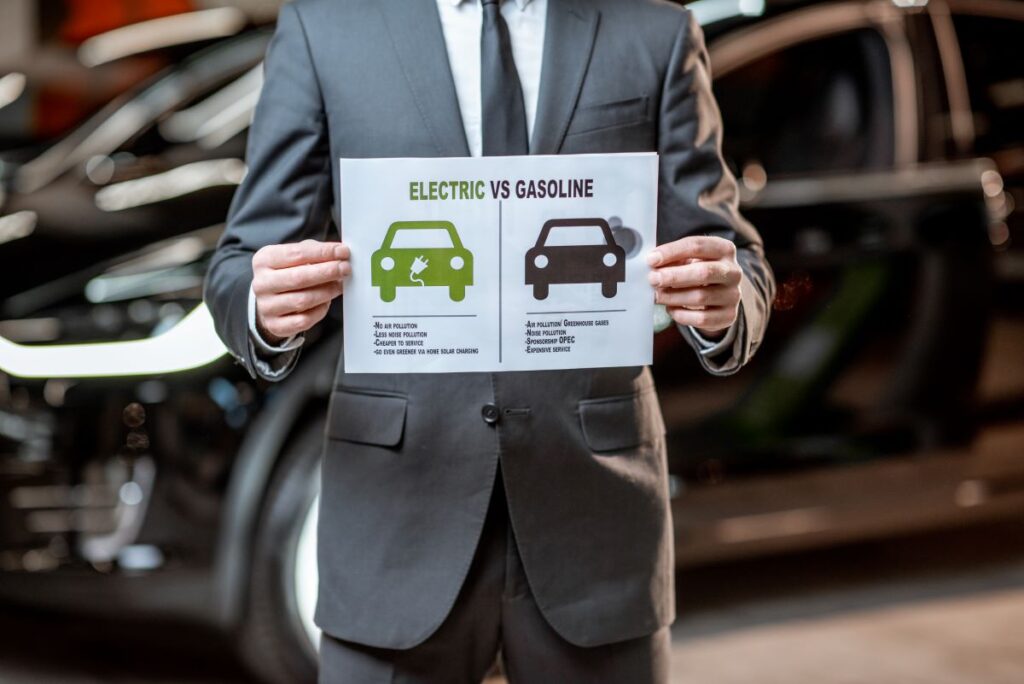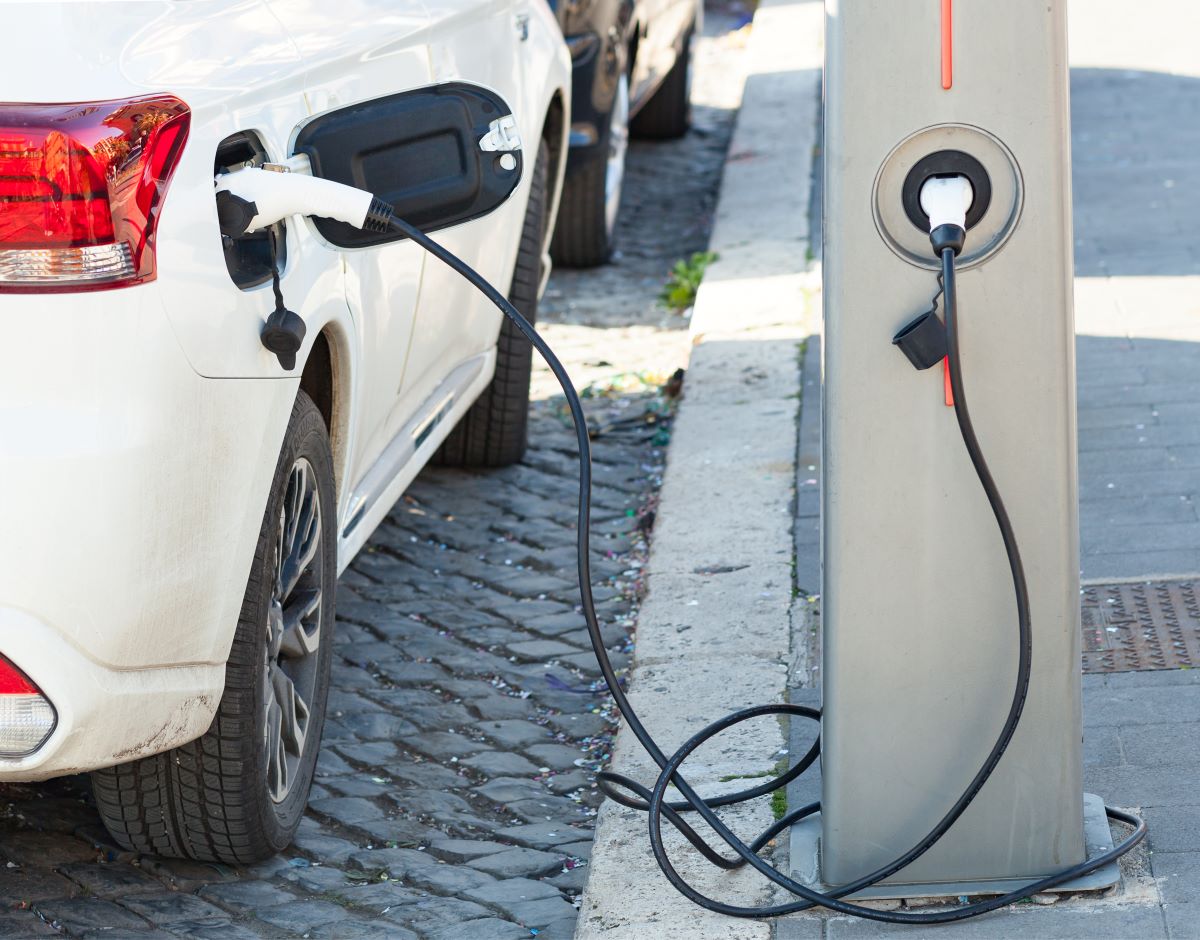Introduction
The debate around Electric vs Hybrid Cars has become one of the most relevant conversations in the automotive industry today. As fuel prices rise and environmental concerns grow, consumers are faced with the decision of choosing between fully electric vehicles (EVs) and hybrid cars for their daily commute. Both offer unique advantages, but their suitability depends on lifestyle, driving habits, and budget.
For city dwellers who face short commutes, an EV might be the perfect eco-friendly solution. For those who drive longer distances or don’t always have access to charging infrastructure, a hybrid might provide the ideal balance of efficiency and convenience. To truly understand which option is best for daily use, it’s important to compare their features, costs, and long-term practicality.

What Are Electric Cars?
Electric cars (EVs) run entirely on battery power. They require no gasoline and instead rely on charging stations or home charging units to replenish energy. Modern EVs such as the Tesla Model 3, Nissan Leaf, and Hyundai Ioniq have made significant strides in range and affordability.
Key Features of Electric Cars
- Powered solely by electricity
- Zero tailpipe emissions
- Require charging infrastructure
- Instant torque for faster acceleration
- Lower maintenance due to fewer moving parts
Advantages of Electric Cars
- Environmentally friendly with reduced carbon footprint
- Lower fuel costs compared to gasoline
- Smooth, quiet driving experience
- Incentives and tax credits in many regions
Disadvantages of Electric Cars
- Limited driving range compared to hybrids
- Longer refueling times (charging vs. gas pumping)
- Higher upfront cost (though improving over time)
- Charging infrastructure still uneven across regions

What Are Hybrid Cars?
Hybrid cars use a combination of a gasoline engine and an electric motor. Unlike EVs, they don’t rely solely on battery power but instead use the electric motor to assist the engine, improving fuel efficiency. Popular models include the Toyota Prius, Honda Accord Hybrid, and Ford Escape Hybrid.
Key Features of Hybrid Cars
- Dual power sources (gasoline + electric motor)
- Self-charging batteries through regenerative braking
- Greater flexibility for long-distance driving
- Familiar fueling process with improved efficiency
Advantages of Hybrid Cars
- No reliance on external charging stations
- Longer driving range compared to EVs
- Lower fuel consumption than traditional gas cars
- More affordable than many electric models
Disadvantages of Hybrid Cars
- Still produce emissions since they use gasoline
- More complex mechanics (engine + electric system)
- Higher maintenance costs compared to EVs
- Limited performance benefits compared to full EVs

Side-by-Side Comparison: Electric vs Hybrid Cars
To help drivers decide between Electric vs Hybrid Cars, it’s useful to compare them across the most important factors for daily use.
| Factor | Electric Cars (EVs) | Hybrid Cars |
|---|---|---|
| Fuel / Energy | 100% battery-powered, charged at home or public stations | Combination of gasoline + electric motor |
| Range | 150–350 miles (average) per charge | 500–600 miles per tank (average) |
| Refueling Time | 30 mins–8 hrs (depending on charger) | 3–5 mins at any gas station |
| Maintenance | Lower (fewer moving parts, no oil changes) | Higher (dual systems: engine + battery) |
| Upfront Cost | Typically higher (but dropping with incentives) | Lower to moderate, depends on model |
| Emissions | Zero tailpipe emissions | Reduced but not zero |
| Driving Experience | Quiet, smooth, instant acceleration | Similar to gas cars, but more efficient |
Daily Use Scenarios
Every driver’s lifestyle is different. Choosing between Electric vs Hybrid Cars depends largely on commuting patterns, distance, and access to infrastructure.
City Drivers (Short Commutes)
- Best Choice: Electric Cars
- Reason: City drivers often travel short distances daily, which fits within the range of most EVs. They can recharge at home overnight and benefit from lower running costs.
Suburban Commuters (Mixed Driving)
- Best Choice: Hybrid Cars
- Reason: Suburban commuters may have longer daily drives, often mixing highway and city travel. A hybrid offers flexibility without the need to plan charging stops.
Long-Distance Travelers
- Best Choice: Hybrid Cars
- Reason: Road trips and frequent long journeys are easier with hybrids since gasoline stations are widely available and refueling is quick compared to charging.
Eco-Conscious Drivers with Charging Access
- Best Choice: Electric Cars
- Reason: For those with reliable home or workplace charging, EVs provide maximum environmental benefit and minimal fuel costs.
Lifetime Ownership Cost Breakdown
The true value of Electric vs Hybrid Cars comes not just from purchase price, but from long-term ownership costs such as fuel/charging, maintenance, and potential resale value.
| Category | Electric Cars (EVs) | Hybrid Cars |
|---|---|---|
| Purchase Price | $35,000–$55,000 (avg.) | $28,000–$40,000 (avg.) |
| Fuel / Charging (10 yrs) | $4,000–$6,000 (avg. electricity costs) | $10,000–$14,000 (avg. fuel costs) |
| Maintenance (10 yrs) | $3,000–$5,000 (fewer moving parts) | $6,000–$9,000 (engine + battery system) |
| Tax Incentives | Up to $7,500 (varies by region) | Usually none |
| Resale Value (10 yrs) | Lower resale due to tech changes | Higher resale compared to older EVs |
| Total 10-Year Cost | $42,000–$60,000 | $50,000–$70,000 |
Key Insight: While EVs may cost more upfront, they usually become cheaper over the long run thanks to lower fuel and maintenance costs, plus tax incentives. Hybrids offer a middle ground with more convenience for drivers without charging access.
Environmental Impact: Electric vs Hybrid Cars
One of the biggest reasons consumers consider Electric vs Hybrid Cars is their effect on the environment. But while EVs seem like the obvious eco-friendly winner, the full picture is more nuanced.
Electric Cars
- Pros: Zero tailpipe emissions, cleaner for urban environments, potential for 100% renewable charging.
- Cons: Battery production (especially lithium mining) has significant environmental impact. Electricity source (coal vs renewable) affects true sustainability.
Hybrid Cars
- Pros: Lower emissions compared to traditional gas cars, better fuel efficiency.
- Cons: Still reliant on fossil fuels, smaller batteries don’t allow full electric driving for long distances.
Key Insight: Over a full lifecycle, EVs generally have a smaller carbon footprint than hybrids, especially when charged with renewable energy.
Popular Models: Electric vs Hybrid Cars
To make the comparison more practical, here’s how some of the most popular models stack up for daily use.
| Model | Type | Range (miles) | Fuel Economy (MPGe or MPG) | Price Range (USD) | Best For |
|---|---|---|---|---|---|
| Tesla Model 3 | Electric | 272–358 | 132 MPGe | $40,000–$55,000 | City & suburban drivers with charging access |
| Nissan Leaf | Electric | 150–212 | 111 MPGe | $28,000–$35,000 | Budget-conscious city commuters |
| Toyota Prius | Hybrid | ~600 (combined) | 56 MPG | $28,000–$33,000 | Suburban commuters, long-distance travelers |
| Honda Accord Hybrid | Hybrid | ~580 (combined) | 48 MPG | $32,000–$38,000 | Families wanting efficiency + space |
| Hyundai Ioniq 5 | Electric | 220–303 | 114 MPGe | $39,000–$52,000 | Drivers seeking futuristic EV design & range |
Future Outlook: EVs vs Hybrids
The global automotive industry is clearly shifting toward electrification, but hybrids still play an important transitional role.
- EV Growth: By 2030, EVs are expected to account for over 50% of global new car sales, driven by government incentives, expanding charging infrastructure, and falling battery costs.
- Hybrid Longevity: Hybrids will remain relevant for drivers who lack consistent access to charging stations or live in rural areas. They offer a practical bridge between traditional fuel cars and full electrification.
- Regulations: Many countries are planning to phase out gas-powered cars by 2035, which could make EVs the default choice within the next decade.
Conclusion: Which Is Better for Daily Use?
When comparing Electric vs Hybrid Cars, there isn’t a single universal answer—it depends on the driver’s lifestyle:
- If you live in a city, drive short distances daily, and have charging access → Electric Cars are better.
- If you drive longer distances, live in areas with limited charging infrastructure, or want convenience → Hybrid Cars make more sense.
Over the long term, EVs tend to be cheaper to own and more eco-friendly, while hybrids provide flexibility and familiarity. The best choice depends on balancing cost, convenience, and sustainability goals.
Quick Pros and Cons Summary
Here’s a snapshot for readers who want a fast comparison of Electric vs Hybrid Cars:
| Aspect | Electric Cars (EVs) | Hybrid Cars |
|---|---|---|
| Pros | Zero emissions, lower running costs, smooth drive, government incentives | Longer range, quick refueling, no charging dependency, familiar tech |
| Cons | Limited charging infrastructure, longer refuel times, higher upfront cost | Still reliant on gas, higher maintenance (dual systems), fewer eco benefits |
| Best For | City and suburban commuters with charging access | Long-distance drivers, suburban families, rural areas |

Which is cheaper to own: electric or hybrid cars?
Over time, electric vehicles usually cost less due to lower fuel and maintenance expenses. Hybrids are more affordable upfront but can cost more in fuel over a 10-year period.
Do hybrids pollute less than electric cars?
Hybrids reduce emissions compared to gasoline cars but still rely on fossil fuels. EVs create zero tailpipe emissions, though their batteries have an environmental footprint.
Are electric cars good for long-distance travel?
Electric cars can handle long-distance travel if fast-charging stations are available along the route. However, for frequent road trips, hybrids may be more convenient.
Will hybrids become obsolete in the future?
Hybrids will remain relevant in areas with limited charging infrastructure, but as EV technology advances, they may eventually be phased out.
How does depreciation affect electric and hybrid cars?
Both lose value, but EVs can depreciate faster due to rapid technological updates. You can explore more in our guide on why new cars lose value so quickly.
Where can I learn more about the environmental impact of EVs?
A helpful resource is the Union of Concerned Scientists’ analysis on EV emissions, which explains the full lifecycle impact of electric vehicles.

